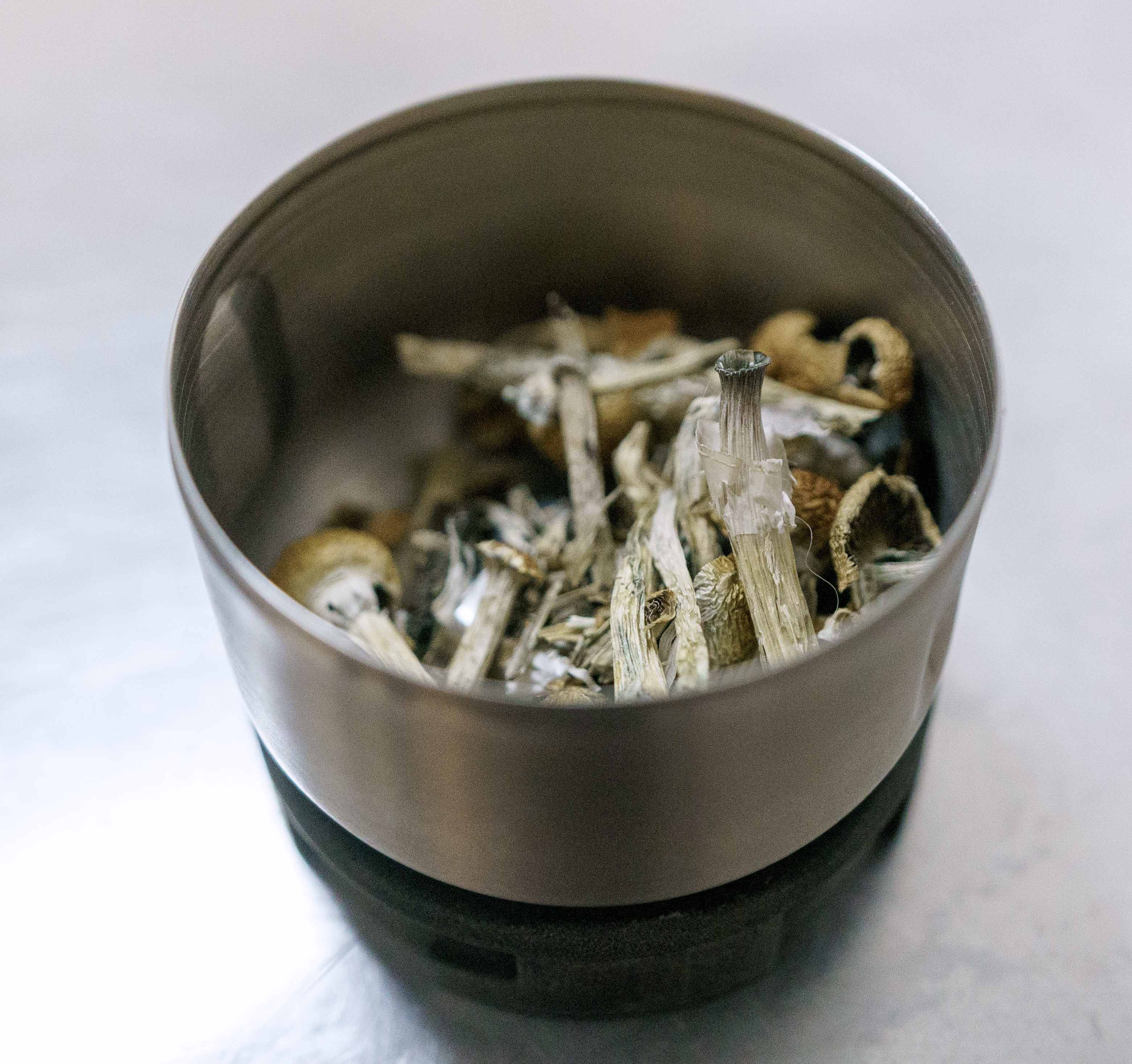
Psilocybin mushrooms, about to be tested at Rose City Laboratories, March 17, 2023. Rose City is the first lab in the state to apply for a license and meet Oregon Health Authority requirements for testing the purity and potency of psilocybin mushrooms.
Kristyna Wentz-Graff / OPB
In 2020, Oregon became the first state in the nation to allow the supervised use of psilocybin when voters approved Measure 109, which directed the Oregon Health Authority to develop a program of rules and regulations around the hallucinogen’s use.
Two and a half years later, the state is now reviewing applications and issuing licenses for psilocybin facilitators, service centers, manufacturers and testing laboratories.
Angie Allbee, manager of the psilocybin services section at OHA, recently told OPB’s “Think Out Loud” that clients will likely be able to participate in supervised sessions in the coming months.
“It might take a little bit of time for service centers to establish their business relationships and hire their employees,” she said. “But we definitely expect that service center doors will open in 2023, hopefully sometime in the fall.”
As of Monday, the state has approved two manufacturing licenses. No licenses have yet been granted to service centers, facilitators or testing laboratories.
The program’s rollout has been rocky at times, with a major trainer going bankrupt and several counties and municipalities opting out of the program.
Licensing fees – which the psilocybin services section relies on for funding – can also amount to tens of thousands of dollars, challenging some fledgling businesses in the industry.
“Because we have to have all of our budget covered by the cost of fees, it does strain us,” Allbee said. “We’re looking closely at ways to create more equitable licensing fees. We know that it’s so important to have representation from diverse-lived and professional experience in our regulated community.”
Under the rules that were approved in December, people won’t be able to purchase psilocybin for personal use as they can with the dispensary model for recreational cannabis use.
Instead, clients can engage in supervised sessions overseen by a trained facilitator. Sessions must take place in a licensed service center, and the psychedelic mushrooms used must be grown and tested by licensed manufacturers and laboratories.
While OHA doesn’t control the price of psilocybin sessions, Allbee said the cost of services will likely be determined by location, dosage and number of participants in the session.
“For those folks who are going into a more urban setting, group administration session [or] lower-dose administration session, it could cost significantly less than those that are coming in for a one-on-one, standard-dosage session,” she said.
Nationally, psilocybin is still a Schedule I controlled substance — the strictest designation under federal law.
Allbee said the psilocybin services section has been in communication with the U.S. attorney for Oregon, as required by the measure voters approved in 2020.
“There’s so much movement in the psychedelic space nationwide,” she said. “I think that we’ll always provide information and answer any questions from federal partners.”
OHA’s Psilocybin Services Section Manager Angie Allbee spoke to “Think Out Loud” host Dave Miller. Click play to listen to the full conversation:



